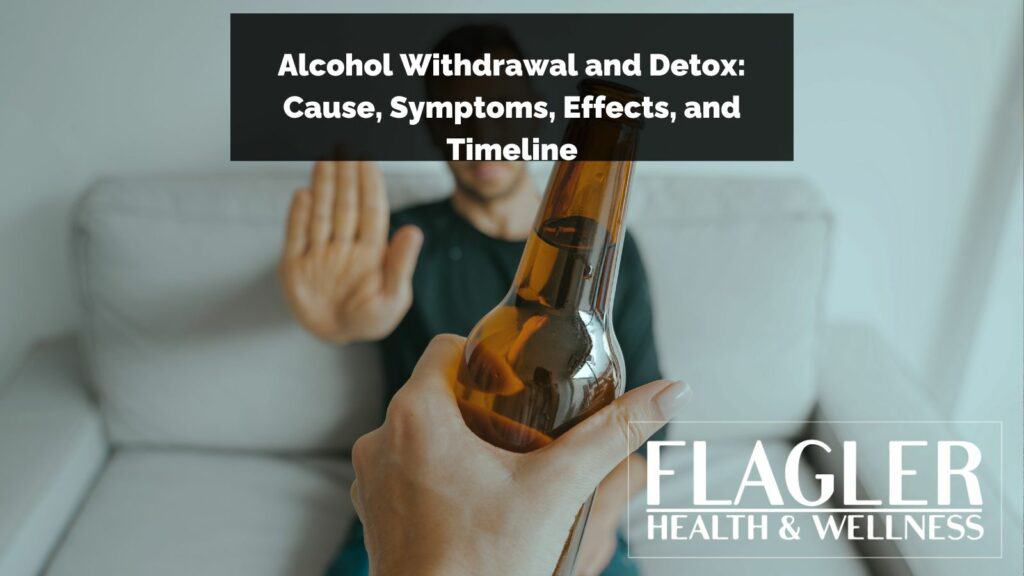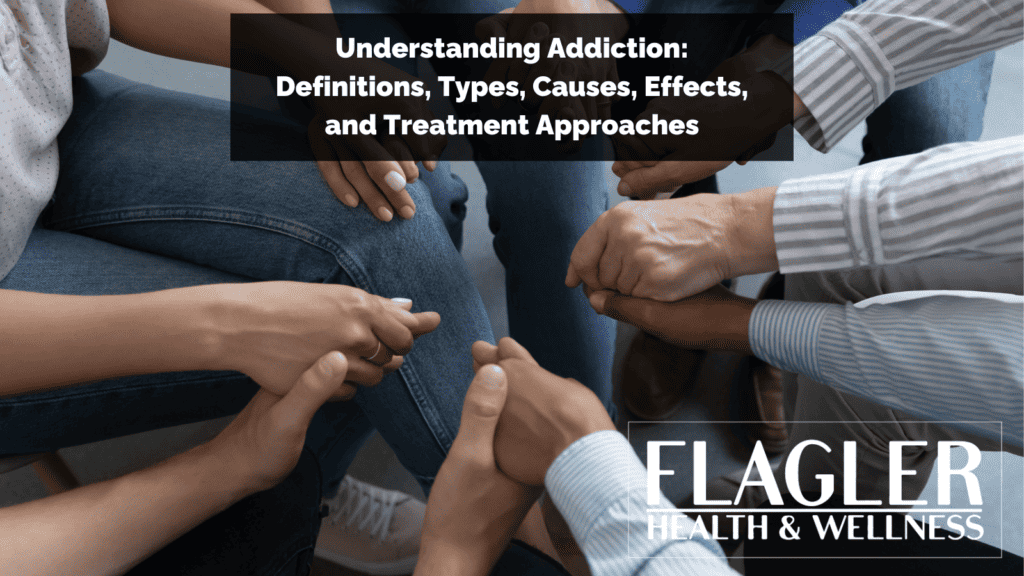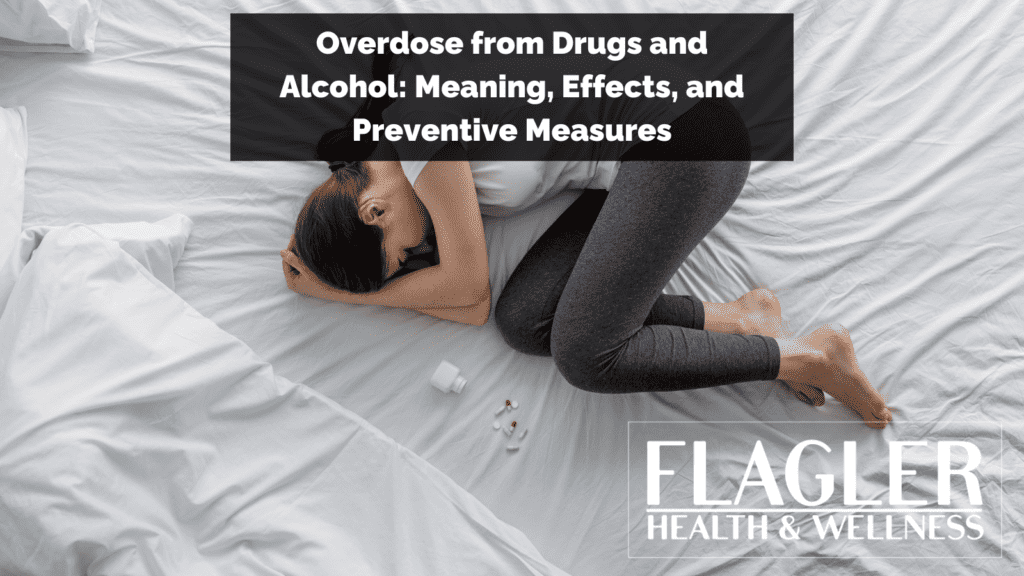Alcohol withdrawal is the process the body experiences when an individual stops or reduces their alcohol consumption, which can trigger a range of physical and psychological symptoms. Recovering from an alcohol addiction requires professional support, and gaining insight about the process is the first step to getting yourself or a loved one the help they need.
Alcohol withdrawal symptoms can manifest in a number of different ways, ranging from mild discomfort to severe complications. Shivering, anxiety, and nausea are common, while more severe cases may lead to hallucinations or seizures.
The primary cause of alcohol withdrawal is the abrupt discontinuation of sustained heavy drinking. The body, accustomed to a constant influx of alcohol, reacts adversely when deprived, leading to the manifestation of withdrawal symptoms.
The effects of alcohol withdrawal can be debilitating, impacting both physical and mental well-being. From heightened anxiety to potential seizures, the toll on the body and mind during this phase can be profound.
The Difference Between Alcohol Withdrawal And Alcohol Detox
Alcohol withdrawal refers to the symptoms experienced when a person stops or reduces heavy and prolonged alcohol use. Common symptoms include increased heart rate, elevated blood pressure, and disrupted sleep patterns due to altered neurotransmitter activity. More severe symptoms, such as seizures or delirium tremens (DTs), occur due to the extreme overactivity of the nervous system in the absence of alcohol.
Alcohol detox, on the other hand, is the process of allowing the body to eliminate the alcohol in its system and return to its normal state. The liver plays a crucial role in detox because it is the main organ responsible for metabolizing alcohol and removing it from the body. The detox process is directly affected by the health of a person’s liver and how much alcohol it can metabolize at a given time.
The detox process can also lead to dehydration and nutrient deficiencies because alcohol impairs the body’s ability to absorb vital nutrients. In some cases, prolonged heavy drinking can lead to more serious conditions like liver cirrhosis or pancreatitis, which can complicate the detox process.
During a medically supervised detox, healthcare professionals monitor vital signs, provide medications to ease withdrawal symptoms, and offer support to address both the physical and psychological aspects of recovery. Alcohol withdrawal and detox are deeply intertwined processes that can benefit from experienced medical supervision.
What Is The Cause of Alcohol withdrawal?
Alcohol withdrawal is a direct consequence of the brain’s adaptation to prolonged or heavy alcohol consumption. When a person consumes alcohol regularly, the brain compensates for alcohol’s depressant effects by increasing the activity of neurotransmitters like glutamate, and decreasing the activity of inhibitory neurotransmitters, such as GABA.
This adaptation leads to altered neural communication and brain function. When alcohol intake is suddenly reduced or stopped, the brain remains in this hyper-excited state because it has become accustomed to the presence of alcohol. This imbalance results in withdrawal symptoms.
Symptoms of Alcohol Withdrawal During Detox
When someone stops drinking alcohol, they can experience a range of physical and psychological symptoms known as alcohol withdrawal. These symptoms can vary from mild to severe and last for a few weeks or months.
Physical symptoms may include:
- Tremors
- Sweating
- Headaches
- Nausea and Vomiting
- Insomnia
- Increased Blood Pressure
- Loss of Appetite
- Increased Body Temperature
- Rapid Heart Rate
- Heart Palpitations
- High Fever
- Delirium Tremens (DTs)
Psychological symptoms may include:
- Anxiety
- Mood disturbances such as irritability, intense sadness, or even euphoria
- Delusions
- Paranoia
- Hallucinations
When Does Alcohol Withdrawal Start?
Alcohol withdrawal starts 6-12 hours after a person’s last drink, and is usually marked by the onset of mild symptoms such as headaches, stomach pain, small tremors, and insomnia. Symptoms may intensify at the 24 hour mark to include hallucinations, with symptoms peaking at 72 hours.
What Are The Long And Short Term Effects Of Alcohol Withdrawal?
Alcohol withdrawal can have a range of effects that vary in duration and intensity. Understanding these effects is crucial for managing the withdrawal process and preparing for recovery. Here is an expanded explanation of the long and short-term effects:
Short-Term Effects:
- Physical Symptoms: These can range from headaches, abdominal pain, and nausea to disturbed sleeping patterns are common short-term side effects of alcohol withdrawal.
- Psychological Symptoms: These can range from mood swings to anxiety and panic attacks. In severe cases people may experience disorientation or hallucinations.
Long-Term Effects:
- Mental Health Challenges: People may experience depression, anxiety disorders, and cognitive impairments including challenges with concentration, memory issues, and impaired decision making abilities.
- Physical Health Issues: These issues can include chronic fatigue and pain as well as a weakened immune system.
- Risk of Relapse: Craving for alcohol can persist past the initial detox phase, which contributes to a risk of relapse. Being in triggering environments or around triggering people can also trigger a relapse.
Understanding both the short and long-term effects of alcohol withdrawal is essential for individuals undergoing the process and for their support networks. It highlights the importance of comprehensive treatment plans that address both immediate withdrawal symptoms and long-term recovery needs.
How Long Does Alcohol Withdrawal Take During Detox?
Alcohol withdrawal can take anywhere from a few days to several weeks. Symptoms usually peak in intensity and severity at the 72 hour mark. Medical supervision during the 48-72 hour window is especially important for alcohol detox in case life threatening symptoms arise.
What influences alcohol withdrawal and detox timeline?
Several factors influence the timeline of alcohol withdrawal and detox, including the duration and extent of alcohol consumption, individual health, and the presence of co-occurring mental health conditions.
What Happens During Alcohol Withdrawal?
During alcohol withdrawal the body and brain are attempting to recalibrate themselves in the absence of alcohol, resulting in a range of physical and psychological symptoms. Here are some of the processes and adjustments that occur during alcohol withdrawal:
- Neurological Adjustments: The brain, which has adapted to the depressant effects of alcohol, suddenly finds itself without the substance it has grown accustomed to. This leads to an overactivity of the central nervous system.
- Physical Reactions: The body responds to the absence of alcohol with various physical symptoms. The body’s systems, including the digestive, cardiovascular, and nervous systems, all react to the sudden change, leading to symptoms like nausea, increased heart rate, and blood pressure fluctuations.
- Psychological Effects: Psychologically, the absence of alcohol can lead to heightened states of anxiety, irritability, and mood swings. In severe cases, individuals may experience hallucinations, delusions, or severe confusion known as delirium tremens. These symptoms reflect the brain’s struggle to adapt to the absence of a substance it has relied on to regulate mood and cognitive functions.
Factors That Affect Alcohol Withdrawal
The severity and duration of alcohol withdrawal can be influenced by a variety of factors. Understanding these can help predict the potential challenges an individual might face during withdrawal. Here are the key factors:
- Duration and Quantity of Alcohol Consumption: Chronic heavy drinking or a history of binge drinking can result in more severe withdrawal symptoms.
- Physical Health Factors: Pre-existing health conditions such as liver or cardiovascular diseases can worsen withdrawal symptoms.
- Mental Health Factors: Co-occurring mental health issues like anxiety, depression, or bipolar disorder can complicate the withdrawal process.
- Age and Gender: Older adults may experience more intense symptoms. Gender can also play a role, with differences in body composition and metabolism affecting the withdrawal process.
- Polydrug Use: The use of other substances, such as drugs or medication, in conjunction with alcohol can complicate withdrawal.
- History of Withdrawal Episodes: People who have previously experienced severe withdrawal symptoms like seizures or delirium tremens are at a higher risk of severe withdrawal in subsequent episodes.
How To Treat Alcohol Withdrawal
Treating alcohol withdrawal requires a comprehensive approach that combines medical, psychological, and social interventions, beginning with a medically supervised detox. Seeking professional help from healthcare providers experienced in addiction treatment is crucial. Other forms of support, such as medication assisted treatment (MAT) and consistent therapy in an inpatient setting can be a necessary part of achieving positive recovery outcomes.
Treatment Plan For Alcohol Withdrawal During Detox
A structured treatment plan during detox is important for a successful recovery journey and will be unique to the individual. Managing withdrawal symptoms, whether they are physical, emotional, or psychological is of the utmost importance, which may involve being prescribed medication or attending different types of therapy.
Can I Die From Alcohol Withdrawal?
Yes, It is possible for someone to die from alcohol withdrawal. Severe symptoms of alcohol withdrawal include respiratory issues, high blood pressure, and rapid heart rate, which can lead to fatal complications. Seeking professional medical assistance that has experience with addiction treatment is crucial to minimize this risk. If you have an excessive amount of alcohol in your bloodstream, you can also be at risk of alcohol poisoning.
Can Alcohol Withdrawal Cause Seizures?
Yes, alcohol withdrawal can cause seizures in more severe cases. Any alcohol or drug detox should be considered as a potential medical emergency, which is why medically supervised detoxes are so important. If you or a loved one are experiencing intense withdrawal symptoms, consult a medical professional right away.
How To Cope With Alcohol Withdrawal
Coping with alcohol withdrawal requires a well-rounded approach to see what works best for you. Here are some strategies that can help you manage withdrawal symptoms.
- Medical and Professional Support: Consulting a medical professional is always a good first step. Rehab programs offer different treatment options including group and private therapy that can offer you comprehensive support and help address underlying issues that led to addiction in the first place.
- Physical Health Management: Eating nutritious meals, staying hydrated, and getting plenty of sleep will help your body heal and manage the withdrawal process, which can be very physically taxing.
- Mental and Emotional Well-being: Practicing mindfulness, meditation, or yoga can help reduce stress and improve mental clarity. Journaling and attending support groups like Alcoholics Anonymous (AA) for community support and shared experiences are all great tools to support you during the process.
- Lifestyle Adjustments: Spending time in nature can help promote a sense of well being. It’s also important to avoid triggering people and situations so you can stay focused on healing.
Coping with alcohol withdrawal is a personal journey, and what works for one person may not work for another. It’s important to explore various strategies and find a combination that works best for you, always prioritizing your health and well-being.
Get Help At Flagler
At Flagler, we offer a range of treatment options to assist individuals struggling with alcoholism. From the initial detox phase to ongoing therapy and support, we are committed to providing compassionate and effective care tailored to each individual’s needs.
Our treatment programs utilize a combination of modalities and support to help you recover from addiction and build a strong foundation for the life you’d like to lead. No matter where you are on your recovery journey, there is always help available. Reach out to us today for more information about how our alcohol treatment programs can help you or a loved one.
Share This Post







